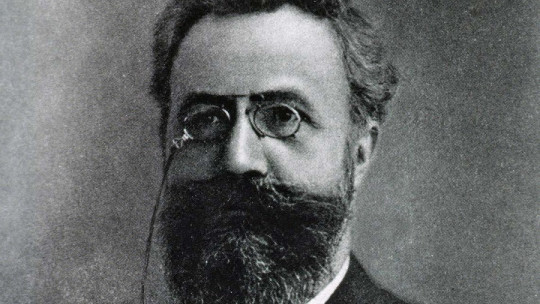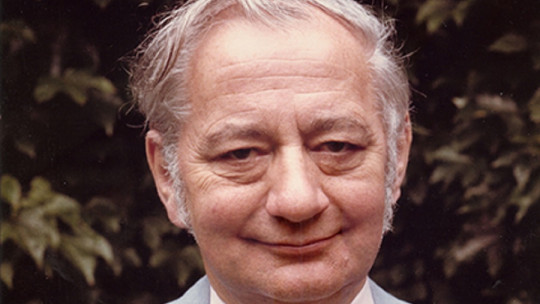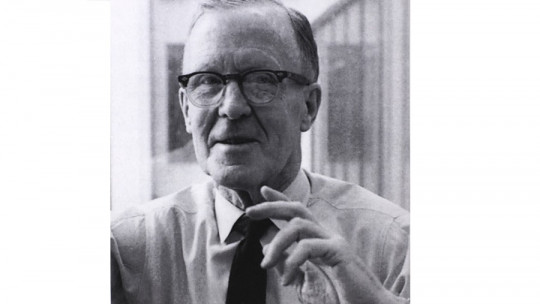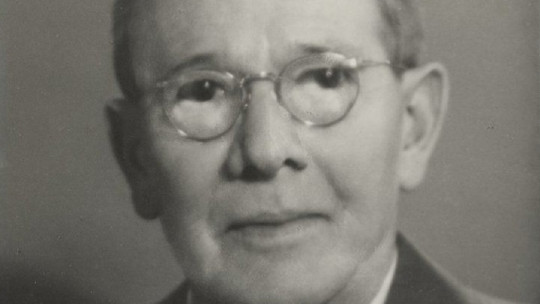Hermann Ebbinghaus is widely known in the world of psychology. This important psychologist and philosopher was one of the first to use scientific methodology in the study and analysis of higher cognitive ability. Ebbinghaus made various contributions to the world of psychology, being especially relevant for being a pioneer in the study of memory.
Hermann Ebbinghaus is a seminal figure in the field of psychology, particularly known for his groundbreaking work on memory and learning. His contributions were pivotal in shaping the early stages of experimental psychology and his methods continue to influence the field to this day. Ebbinghaus was a German psychologist and philosopher, whose rigorous empirical studies laid the groundwork for much of modern cognitive psychology. This article delves into the life and legacy of Hermann Ebbinghaus, exploring his biography, contributions, and lasting impact on psychology.
In this article we are going to see a brief biography of Hermann Ebbinghaus.
Early Life and Education
Hermann Ebbinghaus was born on January 24, 1850, in Barmen, Prussia (now part of Germany). He came from a well-to-do family, but there was little indication that he would eventually become one of the most influential psychologists in history. Ebbinghaus studied at several universities, including the University of Bonn and the University of Berlin. He initially studied history, philosophy, and psychology, but it was his growing interest in psychology that ultimately led him to pursue a career in the field.
Ebbinghaus was greatly influenced by German philosophers like Immanuel Kant and Johann Friedrich Herbart, whose ideas on memory and learning shaped his thinking. He eventually earned his doctorate in philosophy in 1873 under the supervision of the philosopher Friedrich Lange.
Early years: training and military service
In 1867 a young Hermann Ebbinghaus would begin his university studies at the University of Bonn, interested in history and philology. However, during the course of his studies his interests ended up focusing on philosophy.
In 1870 he had to leave them temporarily to serve in the army in the Franco-Prussian War, after which he would resume his studies. He received his doctorate in philosophy in 1873, having prepared a thesis based on the philosophy of the unconscious (from Hartmann’s philosophical approach).
After obtaining his doctorate, Ebbinghaus would make trips to England and France, where would continue training and carrying out different experiments while working as a tutor. During this time he would learn about Fechner’s work based on psychophysics, becoming convinced that it was possible to study higher mental processes from a scientific and reliable perspective.
Thus, he would begin to be interested in what has turned out to be one of the most important and notable contributions of Ebbinghaus in the field of psychology: his studies on memory In fact, he is considered the father of the scientific study of memory.
Marriage, offspring and publication of “On Memory”
Personally, in 1884 Ebbinghaus He would marry Adelheid Julia Amalia Görlitz A year later, their son, Julius Ebbinghaus, would be born, who would eventually become an important neo-Kantian philosopher. That same year, in 1885, Ebbinghaus would publish one of his most representative works, “Über das Gedächtnis” (“On Memory”), in which he reflected his studies in this subject.
Research on memory, vision and learning
Memory was not the only aspect that Ebbinghaus investigated. In 1890 he would begin to be interested in and work on the sense of sight, specifically the perception of color. Together with König he would found the publication Zeitschrift für Psychologie und Physiologie der Sinnesorgane, focused on sensory perception from both a psychological and physiological perspective. In this aspect The study of optical illusions also stands out discovering that the perception of the size of an object varies according to the size of those around it.
Four years later he would enter the race for the direction of the philosophy department at the University of Berlin, which was awarded to the also well-known psychologist Carl Stumpf. Afterwards he would accept a position at the University of Breslau, where he would return to work again exploring memory and learning.
It would also focus heavily on this last aspect, aiming to investigate while making practical use of its research in the educational field. Created the gap test, based on the reading of sentences in which the subject had to fill in the gaps left by the evaluator (first the complete sentences were read and later the same ones but without certain words or groups of words). This test was aimed at evaluating intelligence and memory in children.
Ebbinghaus’ death, and legacy
In 1905, he decided to leave the University of Breslau to move to Halle, the city where he would live his last years. Ebbinghaus He would die in this city on February 26, 1909, as a result of pneumonia
Throughout his life he published various publications of great interest, and his research and methods continue to be used (although modified) today for various purposes. He is one of the first psychologists to use scientific methodology to analyze higher cognitive processes, his legacy being extensive despite not having had disciples or having created currents of thought.
Pioneering Experimental Psychology
Ebbinghaus is most famous for his pioneering work in the field of experimental psychology, particularly in the areas of memory and learning. Prior to his work, the study of the mind was largely based on introspective methods, which involved individuals reporting on their own mental states. However, Ebbinghaus believed that psychology needed to be more scientific and objective, so he developed methods that could be used to measure mental processes.
One of his most notable contributions was his development of the “forgetting curve.” He conducted rigorous experiments to measure how information is forgotten over time. In a series of experiments conducted in the late 19th century, Ebbinghaus used himself as the sole participant and tested his ability to memorize and recall lists of nonsense syllables. His research revealed that memory retention decreases rapidly at first but then levels off after a period of time.
Ebbinghaus also discovered the “spacing effect,” which suggests that information is better retained when learning sessions are spaced out over time, rather than crammed into a single session. This finding has had profound implications for educational psychology and study techniques.
The “Forgetting Curve” and Its Impact
The “forgetting curve” is perhaps Ebbinghaus’s most famous contribution to psychology. The curve describes the decline of memory retention over time, showing that information is forgotten at an exponential rate shortly after it is learned. However, the rate of forgetting slows down as time progresses.
This concept helped shift the focus of memory research toward understanding how and why we forget. Ebbinghaus’s work challenged existing ideas about memory, which were based on philosophical speculation, and introduced a more scientific and experimental approach to studying mental processes. His findings were groundbreaking, and his methods of experimentation set a precedent for future research in psychology.
Method of Loci and Nonsense Syllables
Ebbinghaus also created the method of “nonsense syllables” to eliminate prior associations between words and existing memories. He used combinations of consonants and vowels (e.g., “zok,” “bim,” “fep”) that had no meaning, ensuring that participants in his experiments couldn’t rely on prior knowledge or associations to aid in their memory recall.
By using these meaningless combinations, Ebbinghaus was able to measure pure memory processes, such as how much time it took to memorize a list or how many repetitions were required for recall. This innovative method removed external factors and allowed for an unbiased study of memory retention.
Contributions to Philosophy
While Ebbinghaus is best known for his work in psychology, he also made significant contributions to philosophy, especially in the areas of epistemology and logic. His work in philosophy helped inform his psychological research, particularly in his emphasis on empirical methods and the scientific study of the mind.
Ebbinghaus’s approach to memory was influenced by his philosophical views on the nature of knowledge and the mind. He believed that knowledge could be systematically studied and quantified through rigorous experimentation. This perspective was revolutionary at the time and set him apart from many of his contemporaries, who still relied on introspection and subjective accounts of mental experiences.
Legacy and Influence
Hermann Ebbinghaus’s influence on psychology cannot be overstated. His experiments on memory and learning laid the foundation for future research in cognitive psychology and educational psychology. Many of the concepts he discovered, such as the forgetting curve, the spacing effect, and the use of nonsense syllables, continue to shape our understanding of how the mind works.
Ebbinghaus’s work also had a lasting impact on the methods used in psychological research. He emphasized the importance of objectivity, measurement, and empirical evidence in the study of mental processes. His rigorous experimentation helped elevate psychology from a speculative field to a more scientific and data-driven discipline.
Today, Ebbinghaus’s research is still widely cited in textbooks, academic articles, and research papers. His work is considered a cornerstone of experimental psychology, and his methods continue to inform modern studies on memory, learning, and cognition.
Later Life and Death
After his groundbreaking work in psychology, Ebbinghaus continued to contribute to the field as a professor at the University of Berlin. However, in the later years of his life, he turned his attention to other intellectual pursuits, particularly philosophy. He also published numerous essays and articles on the philosophy of science.
Hermann Ebbinghaus passed away on February 25, 1909, at the age of 59. Although his contributions to psychology were immense, it was only after his death that his work truly gained widespread recognition. Today, he is regarded as one of the founders of experimental psychology, and his research continues to influence cognitive science, neuroscience, and education.
Study of memory and other scientific contributions
These studies would begin in 1878, when Hermann Ebbinghaus would begin to carry out various experiments using himself as an experimental subject and applying methodology based on psychophysics. It was common for him to use lists of nonsense words or pseudowords, because they allowed the memorization capacity to be measured more objectively by not being able to use elements such as meaning to support and facilitate memory. He generated the words randomly and later memorized them and tried to reproduce them orally.
Shortly after, in 1880, he would be appointed assistant professor (something like associate professor) at the Friedrich-Wilhelm University of Berlin. The results of the different experiments on memory and the subsequent analysis of it would lead him to develop concepts as important and influential as the forgetting curve and that of learning or the role of reviewing the material to be learned when maintaining content in memory.
FAQs About Hermann Ebbinghaus
Who was Hermann Ebbinghaus?
Hermann Ebbinghaus was a German psychologist and philosopher known for his pioneering work on memory, learning, and experimental psychology. He is best known for developing the forgetting curve and the use of nonsense syllables in memory research.
What is the forgetting curve?
The forgetting curve is a concept developed by Ebbinghaus that describes the rate at which information is forgotten over time. It shows that memory retention decreases rapidly at first, but the rate of forgetting slows down after a period of time.
What did Ebbinghaus discover about memory?
Ebbinghaus discovered the forgetting curve, the spacing effect, and the use of nonsense syllables in memory experiments. He also demonstrated that memory retention improves when learning sessions are spaced out over time.
What impact did Ebbinghaus have on psychology?
Ebbinghaus revolutionized the field of psychology by applying scientific methods to the study of memory and learning. His work laid the foundation for cognitive psychology and influenced modern research on memory, learning, and education.
How did Ebbinghaus contribute to philosophy?
Ebbinghaus made significant contributions to epistemology and logic. His philosophy emphasized the scientific study of knowledge and the mind, influencing his psychological research and experimental methods.










